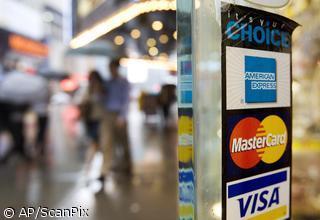Officials at the European Commission have made a spectacular turnabout on a proposed law governing cross-border Internet commerce in Europe
Published:
30 August 2001 y., Thursday
Officials at the European Commission have made a spectacular turnabout on a proposed law governing cross-border Internet commerce in Europe, deciding to seek input and considering abandoning a long-held position on a key legal question.
Justice and home affairs experts drafting a law dubbed "Rome II" will seek consultations with industry and consumer groups, after saying in April that to do so would be a waste of taxpayers money. The authors of the draft regulation further are contemplating abandoning the long-held legal position on the question of which national law to apply in a cross-border dispute.
Until now, the officials have advocated applying the laws in the country where a consumer is situated, provoking criticism from industries, including fast-moving consumer goods, e-commerce merchants and publishers, that such an approach will smother e-commerce with legal obligations.
"We are not sure whether to set up a special regime for e-commerce or to remove the country-of-destination principle altogether. This has yet to be clarified," said David Seite, one of the authors of the draft regulation.
By applying a country-of-origin approach to cross-border online disputes, the regulation will be reinforcing, rather than contradicting existing European legislation such as the e-commerce directive, said an official inside another Commission department. However, he was wary of giving his full support to his justice and home affairs colleagues. "I'll reserve judgment until I see what they come up with," he said.
Šaltinis:
idg.net
Copying, publishing, announcing any information from the News.lt portal without written permission of News.lt editorial office is prohibited.
The most popular articles
Software company announced new structure_ of it_s business.
more »
 Microsoft's Bing search engine will be the sole provider of search and paid search technology for all of Yahoo's websites. Yahoo will sell premium search ads for both companies.
more »
Microsoft's Bing search engine will be the sole provider of search and paid search technology for all of Yahoo's websites. Yahoo will sell premium search ads for both companies.
more »
 Thales UK today announces that its Cat III Instrument Landing System (ILS)1 has received UK approval for installation at Bournemouth Airport.
more »
Thales UK today announces that its Cat III Instrument Landing System (ILS)1 has received UK approval for installation at Bournemouth Airport.
more »
 Postbank customers can now pay their fuel bills at Shell service stations and withdraw cash as stations in Hamburg, Germany, have been converted to the new technology from Wincor Nixdorf International.
more »
Postbank customers can now pay their fuel bills at Shell service stations and withdraw cash as stations in Hamburg, Germany, have been converted to the new technology from Wincor Nixdorf International.
more »
 Japanese company Crescent has simulated a series of emergency situations that people may have to deal with in the workplace. By practicing with these simulations they can learn how to cope with a real-life crisis.
more »
Japanese company Crescent has simulated a series of emergency situations that people may have to deal with in the workplace. By practicing with these simulations they can learn how to cope with a real-life crisis.
more »
 The touchscreen device built on Google's Android platform equates to a bold attempt by HTC to take on Apple's popular iPhone - not by creating a copycat - but by building an attractive alternative.
more »
The touchscreen device built on Google's Android platform equates to a bold attempt by HTC to take on Apple's popular iPhone - not by creating a copycat - but by building an attractive alternative.
more »
 A devious piece of criminal coding that has been quietly at work in a clutch of ATMs at banks in Russia and Ukraine has recently been discovered.
more »
A devious piece of criminal coding that has been quietly at work in a clutch of ATMs at banks in Russia and Ukraine has recently been discovered.
more »
 In the person-to-person transfer business, text messaging is so 2008.
more »
In the person-to-person transfer business, text messaging is so 2008.
more »
 Bank Central Asia, one of Indonesia's largest banks, has partnered with Wincor Nixdorf International to rejuvenate its branch network.
more »
Bank Central Asia, one of Indonesia's largest banks, has partnered with Wincor Nixdorf International to rejuvenate its branch network.
more »
 What's cooking at Tokyo's International Food Machinery and Technology Expo? For this robo-chef, it's okonomiaki, Japanese pancakes.
more »
What's cooking at Tokyo's International Food Machinery and Technology Expo? For this robo-chef, it's okonomiaki, Japanese pancakes.
more »
 Taking attendance at Aoyama University used to be a chore, but no longer as the Japanese school is giving over 500 iPhones to students and faculty in an effort to enhance the classroom experience.
more »
Taking attendance at Aoyama University used to be a chore, but no longer as the Japanese school is giving over 500 iPhones to students and faculty in an effort to enhance the classroom experience.
more »